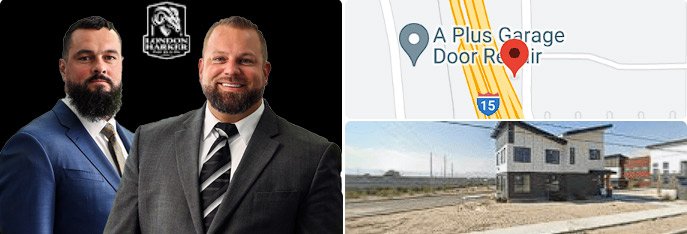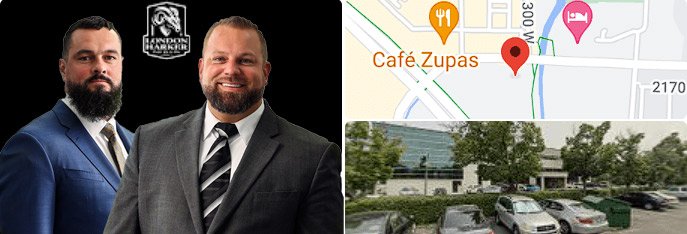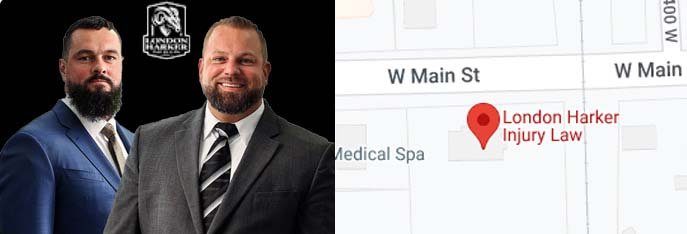Posted on Tuesday, September 16th, 2025 at 1:51 am
The Lifelong Impact of Spinal Cord Injuries: Navigating Personal Injury in Utah
A spinal cord injury (SCI) is one of the most devastating outcomes of a serious accident. Whether caused by a
car crash, fall, workplace incident, defective product, or medical negligence, these injuries often result in
permanent physical limitations, emotional trauma, and overwhelming financial costs.
In Utah, when a spinal cord injury is the result of someone else’s careless or wrongful actions, victims and their families may have the right
to pursue a personal injury claim. Understanding the lifelong impact of spinal cord injuries—and how Utah law protects
accident victims—is critical to securing the resources needed for long-term care, independence, and financial stability.
What is a Spinal Cord Injury and Why is it Catastrophic?
The spinal cord is the body’s communication highway between the brain and the rest of the body. When damaged, it disrupts movement, sensation,
and essential bodily functions. Because of their permanent and life-altering consequences, spinal cord injuries are considered
catastrophic injuries. They often require extensive medical treatment, rehabilitation, and lifelong care.
Types of Spinal Cord Injuries
- Complete SCI: Full loss of function below the injury site; may result in paraplegia or quadriplegia/tetraplegia.
- Incomplete SCI: Partial damage; some sensation or movement remains below the injury site, with outcomes varying by severity and rehab.
The higher the injury occurs along the spine, the more extensive the potential paralysis.
Common Causes of Spinal Cord Injuries in Utah
- Motor vehicle accidents on roadways such as I-15 and I-80
- Falls and unsafe property conditions (premises liability)
- Workplace accidents in construction, manufacturing, and industrial settings
- Sports and recreation, including skiing and diving accidents
- Defective products (e.g., faulty car parts or machinery)
- Medical negligence and surgical errors
- Acts of violence
These are precisely the types of accidents personal injury attorneys handle, helping victims pursue justice and compensation.
The Lifelong Physical Impacts
- Paralysis and loss of movement
- Loss of bladder and bowel control
- Sexual dysfunction
- Chronic pain and nerve damage
- Respiratory complications for high-level injuries
- Secondary health risks such as blood clots, infections, osteoporosis, and pressure sores
Many survivors require round-the-clock care, adaptive devices, and ongoing medical monitoring.
Emotional and Psychological Trauma
- Depression, anxiety, and PTSD
- Loss of independence and inability to enjoy prior activities
- Caregiver strain and shifting family dynamics
Comprehensive recovery plans often include mental health support alongside physical and occupational therapy.
The Financial Burden of a Spinal Cord Injury
- Medical care and rehabilitation that can reach hundreds of thousands of dollars in the first year alone
- Assistive devices (wheelchairs, ventilators, adaptive tech)
- Home and vehicle modifications to restore accessibility
- Lost income and diminished earning capacity
Without compensation, these costs can devastate families—making a strong legal claim essential.
Your Right to Compensation Under Utah Law
If your SCI was caused by someone else’s negligence, Utah law allows you to seek damages for both financial and personal losses, including:
- Economic damages: Medical bills, rehab, lost wages, and home modifications
- Non-economic damages: Pain and suffering, emotional distress, loss of enjoyment of life, and loss of consortium
- Punitive damages: In rare cases of egregious misconduct
Utah follows a modified comparative negligence rule. Under
Utah Code §78B-5-818, you may recover compensation
even if you share some fault—as long as you are less than 50% at fault.
Statute of Limitations: Time is Limited
In most Utah personal injury cases, you have four years from the date of injury to file a lawsuit. Waiting too long can permanently bar your claim.
See Utah Code Title 78B for details.
Why Legal Representation is Critical
- Investigating the accident and preserving key evidence
- Identifying all liable parties and insurance coverage
- Calculating full lifetime costs and future care needs
- Negotiating with insurers; preparing for trial when necessary
For more insights and next steps, visit
LondonHarker.com’s Personal Injury Resources.
Recommended Next Reads
- Understanding Utah’s No-Fault (PIP) & Comparative Fault Laws
- What Not to Say to Insurance After a Utah Car Crash
- How Utah’s No-Fault Insurance Works After a Car Accident
- When to Hire a Lawyer After a Utah Crash
Take the Next Step
A spinal cord injury changes life forever—but with the right legal support, you can secure the resources necessary for long-term care and stability.
Contact an experienced Utah personal injury attorney today to review your options.



